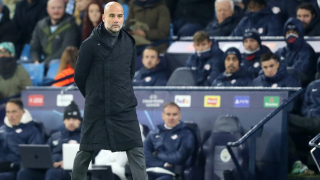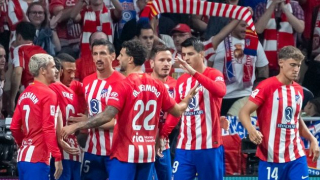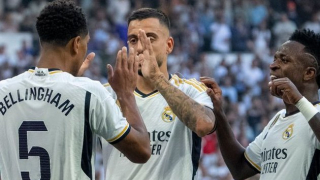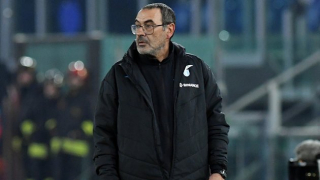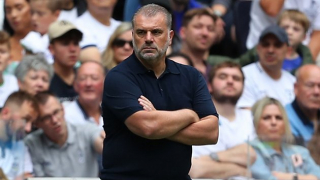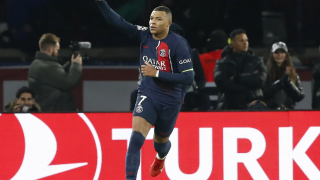COMMENT: Simple question: Have modern day Manchester City been good for English football? Or better yet, would any of the top leagues in Europe reject the money of Sheikh Mansour and the development it has produced over these last 12 years...?
Forget the legalese. The lawyer speak. The moaning from the established. Jurgen Klopp has made it clear he disagrees, but City's appeal success this week was good for football - particularly English football.
Again, if you get into the small details. The mud. There's arguments to be made that the Court of Arbitration for Sport was wrong siding with City in their battle to overturn UEFA's two season ban. As Jose Mourinho, the Tottenham manager, barked the morning of the verdict: "Why are you paying £8m or £9m if you are not guilty? If they are not guilty the decision is a disgrace. If you are guilty the decision is also a disgrace."
And it's a good point from Jose; if City are in the clear, then why fine them? But beyond the minutia. Taking the 10,000ft view. This ruling is a positive - a huge positive - for English football.
It sets a precedent. And a positive one. It offers encouragement to those outside the Premier League looking in. Those potential owners convinced they can emulate what City have achieved. Find a sleeping giant and shake it out of it's slumber. To not only get near the established. To not only challenge them. But to better them. Just as Roman Abramovich did with his Chelsea in the 2000s, City and their UAE backers have done this past decade. With that increased competition has brought greater opportunity. And thus has produced the most exciting league competition in the history of this sport. Something we all would've been denied if City had been condemned to remain where they were pre-Mansour's intervention. The same which can be applied to Abramovich, Chelsea and that dog track.
Financial Fair Play (FFP) wasn't designed to protect the clubs. Their financial state. At least not the UEFA version. It was put together - on consultation with the established and elite - to protect those already at the top of tree. To prevent upstarts across Europe from challenging the status quo. Spend money to make money? Invest now for future growth? No chance. You could only spend what your club made. In other words, only those with an established global supporter base could buy the best players and hire the best coaches.
Which is why Fenway Sports Group are a fan. The owners of the new Premier League champions bought into a club already boasting a massive global fanbase. A global fanbase whose potential had barely been tapped by previous boards. The revenue streams were there. Established. They just needed to be turned on...
Of course, it wasn't as simple as flicking on a switch. But it's been a helluva lot easier generating income as Liverpool's owners than it has been at City or Chelsea. No wonder John W Henry, upon his first visit to Anfield in October 2010, claimed FFP had been integral to his decision to buy the club. FSG's boss declaring at the time he did not have 'Sheik in front of his name', so couldn't compete... Give us a break. It was more about keeping down the likes of City, Chelsea and anyother club owner with the cash reserves to compete with Liverpool. You can just imagine what'll be said if Farhad Moshiri gets it right at Everton.
And of course Klopp, the Reds manager, would reflect this attitude upon learning of the CAS verdict, "I don't think it was a good day for football, to be honest. FFP is a good idea. It is there for protecting teams and the competition, so that nobody overspends and have to make sure the money they want to spend is based on the right sources."
He then went onto cite German football as the model the English game should adapt.
"I am from Germany and I am educated in a completely different system for the majority of my life," Klopp continued. "We have different club structures: a club structure and not an owner based system, so as long as Germany stick to that system they will never have these kinds of problems."
And with that, Klopp blew up his own argument. Of course, there was no push back. But Klopp was claiming the German model was superior. A German model which will have Bayern Munich going for it's tenth consecutive Bundesliga title next season...
Better yet, let's use the example of Thiago Alcantara, the Bayern midfielder who has had his agents offer him to Klopp and the new champions. If the move was to happen in the opposite direction, Thiago would have only the one option. It'd be Bayern or bust. A player of his talent and experience wouldn't - indeed couldn't - consider any alternative if he wished to play in Germany.
In contrast, if it doesn't happen with Liverpool in the coming weeks, the Spain international has his choice of equivalent stages. City, Chelsea, Manchester United, Arsenal, Spurs... you could even throw in Newcastle United once their sale goes through. That's opportunity. Opportunity driven by competition. Competition produced by individuals not accepting the status quo.
Which is why Manchester City, under this ownership, have been good for English football. And also why this ruling from CAS is good for English football. The more challenging the established, the better.


